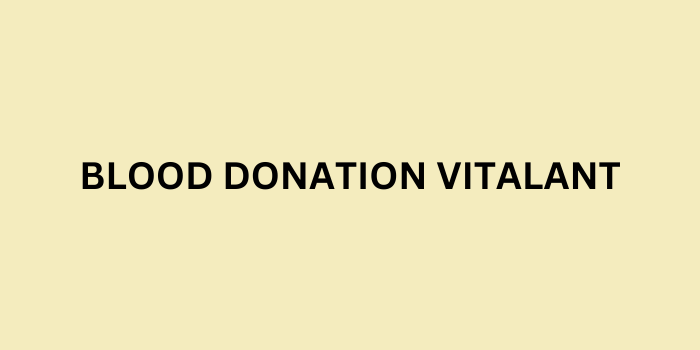In the domain of cognitive well-being, two phrases are frequently interchanged – Alzheimer’s and dementia. Despite their widespread use, these are separate conditions, each possessing distinct attributes. In this all-encompassing manual, we delve into the intricacies of Alzheimer’s and dementia, shedding light on their disparities, resemblances, and the importance of comprehending these ailments.
Understanding Dementia
Dementia operates as a broad term encompassing various cognitive maladies characterized by a deterioration in memory, logical reasoning, and communication capabilities. It doesn’t denote a particular ailment but rather a syndrome enveloping an array of symptoms impacting everyday life. Those grappling with dementia may find everyday tasks that were once routine becoming challenging, face lapses in memory, and confront obstacles in expressing themselves.
Alzheimer’s ailment, on the flip side, is a specialized type of cognitive decline, comprising a significant share of dementia instances. It stands as a progressive cerebral disorder gradually impairing cognitive functions, affecting memory, cognitive processes, and conduct. The hallmark of Alzheimer’s lies in the accumulation of abnormal protein deposits in the brain, resulting in the degeneration of brain cells.
Alzheimers vs Dementia: Distinguishing the Two
While dementia serves as a comprehensive term, Alzheimer’s denotes a more precise and prevalent subclass of dementia. Other variants of dementia encompass vascular dementia, Lewy body dementia, and frontotemporal dementia, each presenting distinct attributes and origins.
Symptoms and Progression
Symptoms of dementia and Alzheimer’s often overlap, making differentiation a challenging endeavor. Common markers encompass memory loss, confusion, communication difficulties, and mood alterations. However, Alzheimer’s typically advances in a more foreseeable manner than other forms of dementia, commencing with mild memory loss and progressing to severe cognitive impairment over time.
Diagnostic Challenges
Determining these conditions entails a detailed examination of medical history, cognitive evaluations, and occasionally, imaging examinations. The process involves eliminating alternative causes for symptoms, such as vitamin deficiencies or thyroid complications.
Coping with Alzheimer’s and Dementia
Facing significant challenges, both Alzheimer’s and dementia present difficulties for individuals and their families.Day-to-day activities become progressively demanding, and caregivers frequently grapple with emotional and logistical impediments. In such situations, technologies like the elderly fall alarm, fall mat for the elderly, and pressure sensor mats can provide valuable assistance.
For individuals dealing with cognitive decline, the risk of falls becomes more pronounced. The elderly fall alarm serves as a practical device designed to augment safety by notifying caregivers when a fall transpires, ensuring swift assistance and diminishing the potential for harm.
In the context of dementia or Alzheimer’s, where balance and coordination may be compromised, a fall mat for the elderly functions as a precautionary measure. Positioned strategically in areas susceptible to falls, these mats furnish a cushioned surface, mitigating the impact of falls and diminishing the likelihood of fractures or injuries.
Integrating pressure sensor mats into caregiving routines introduces an additional layer of safety. Placed in proximity to beds or chairs, these mats activate upon the application of pressure, alerting caregivers to movement and potential attempts to wander – common challenges in dementia cases.
Treatment and Care
While no cure exists for Alzheimer’s or the majority of dementia types, diverse treatments and care strategies endeavor to alleviate symptoms and enhance the quality of life for affected individuals. Medications, cognitive therapies, and lifestyle adjustments play pivotal roles in managing these conditions.
The Importance of Early Detection
Early detection of Alzheimer’s or dementia is pivotal for instituting effective interventions and support systems. It empowers individuals and their families to plan for the future, access available resources, and make well-informed decisions regarding care options.
Support for Caregivers
Caregivers play an essential role in supporting individuals dealing with Alzheimer’s or dementia. The emotional and physical demands of caregiving can be immense. Assistance from support groups, educational materials, and respite care services is invaluable, acknowledging the pivotal role caregivers play in the holistic well-being of those facing cognitive disorders.
Notable technological advancements
Progressions in technology have profoundly impacted the care landscape for individuals contending with Alzheimer’s and dementia. Beyond the elderly fall alarm, fall mat for the elderly, and pressure sensor mats, mobile applications and virtual support platforms catered to caregivers have emerged. These innovations aspire to deliver real-time assistance, educational resources, and a sense of community for those navigating the intricacies of cognitive disorders.
Creating Dementia-Friendly Environments
In addition to technological strides, the creation of dementia-friendly environments is gaining traction. From home adjustments to community initiatives, endeavors are underway to elevate the quality of life for individuals contending with cognitive disorders. Simple alterations, such as clear signage, contrasting colors, and unobstructed pathways, contribute to a more supportive and inclusive setting.
Conclusion
In the intricate sphere of cognitive well-being, Alzheimer’s and dementia stand out as significant challenges. Discerning between the two necessitates a nuanced understanding of their attributes, symptoms, and progression. While technological strides, such as the elderly fall alarm, fall mat for the elderly, and pressure sensor mats, contribute to enhancing safety, the journey with Alzheimer’s or dementia mandates comprehensive care, empathy, and a collaborative effort from healthcare professionals, families, and society.
Mat on Guard’s sustained research, awareness, and support, aims to navigate these conditions with resilience and compassion, striving for enhanced outcomes and an improved quality of life for all those affected.
